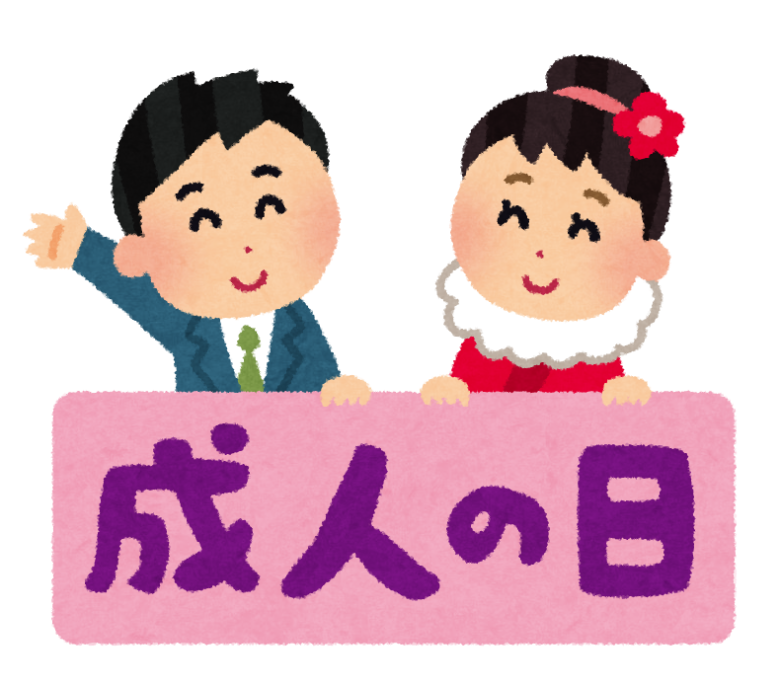Tracing the origin and meaning of Coming of Age Day
For a deeper understanding of Coming-of-Age Day, please click here.
Today is Coming-of-Age Day in Japan, and it is a big holiday that marks the transition from youth to adulthood.
It’s a traditional event that has been passed down from generation to generation, but how can you understand its meaning without knowing its origin?
Today, I will explain the origin of Coming-of-Age Day and its symbolic meaning. Without further ado, let’s touch on the long and deep history of this custom.
Introduction of Coming-of-Age Day
In Japan, Coming-of-Age Day is held once a year on the second Monday of January.
It is a day to commemorate the coming of age for boys and girls who turned 20 years old after the last Coming-of-Age Day.
At the ceremony, each new adult will be presented with an “adult mark” to record that they have become adults.
Gift envelopes and bouquets are also presented. This is to instill a sense of responsibility in new adults and make them respect tradition.
Event News ( Japanese )
Tracing the Origin of Coming-of-Age Day
The custom of coming-of-age days in Japan is said to have started in the era of Emperor Meiji at the end of the 19th century.
This custom was to recognize the importance of adults in Japanese society. This is still the case today, as adulthood symbolizes the ability to be independent and make important decisions.
This custom has become a major holiday in Japan and is celebrated in various ways throughout Japan.
Exploring the Meaning of Coming-of-Age Day
Coming-of-Age Day is regarded as a very important landmark in an individual’s life.
It is seen as a moment when an individual gains the maturity and responsibility that comes with becoming an adult.
Now is the time to wish and celebrate Japan’s bright future. It is also seen as a call to action for new adults to participate and actively contribute to society.
The long and deep history of Coming-of-Age Day
Coming-of-Age Day is celebrated in various ways throughout Japan, including celebrations such as parades, dance performances, and parties.
It is also often accompanied by traditional Japanese ceremonies, such as memorial services for tree branches and the burning of bills.
All of these traditions have a long and deep history dating back to Emperor Meiji. Although recent attempts have been made to make these ceremonies more modern, the history of these practices remains strong and pertinent.
in conclusion
Coming of Age Day is a major national holiday in Japan and has a very long history.
We have explored the details of this holiday, from its origins to its meaning and rituals.
It is a special day that marks the transition from adolescence to adulthood and encourages new adults to become responsible members of society.
Come on, why don’t you join us on this day and celebrate new adults?


